Update- March 12, 2025
Spain’s Golden Visa program has long been a popular route for non-EU investors seeking residency through real estate and business investments. Introduced in 2013, it allowed individuals to obtain a Spanish residence permit by making qualifying investments, primarily in real estate valued at €500,000 or more. This visa granted holders the ability to live and work in Spain, travel freely within the Schengen Zone, and, eventually, apply for permanent residency or citizenship.
However, in a major policy shift, Spain has abolished the Golden Visa program, marking a significant change in the country’s approach to foreign investment in real estate. This decision aligns with growing concerns over housing affordability, speculative property purchases, and economic inequalities linked to the program. We invite your to read our latest article on this topic “Spain Abolishes Golden Visa Programme” to learn why Spain decided to put an end to it and what this means for current and prospective investors.
What is the Golden Visa in Spain?
In short, it allows obtaining an official residence permit by investing in certain areas under Spanish government conditions. The Visa is an authorisation that will enable foreigners to reside in the country, and for Spain, it presents a new opportunity to increase investment in the country.
What are the requirements for the Golden Visa Spain?
Next to a significant investment that you need to make. The other requirements are:
- Your age should be over 18.
- Able to get a NIE Number (Foreigner’s Identification Number).
- Not refused a previous visa or entry into the Schengen Area.
- You don’t have a criminal record.
- Not entered or stayed illegally in Spanish territory.
- You need to provide bank statements showing that you have enough income to support yourself (and any family that might join you).
- Won’t become a burden to the Spanish public health system or social security, and have proper health insurance.
- Not on any kind of terrorist list.
- Not be a citizen of EEA, EU, Switzerland.
- Make the investment in Spain needed.
If you are not sure you are eligible, we can help you. Contact us. We can go through your details and see if you qualify.

Investment to obtain the Spanish Golden Visa
There are multiple ways within the Spain Golden Visa Program. The five investment options for the application are:
- Purchasing a property for 500.000 euros or more.
- Forming and investing in a new business.
- Becoming a company shareholder and depositing in a Spanish bank of at least 1,000,000 euros.
- Investing in the Spanish public debt of at least 2,000,000 euros.
- Making a Spanish Bank Deposit.
Below you can find a description of each investment option.

Purchasing a property for 500.000 euros or more
The first option of purchasing a property for 500.000 euros or more isn’t the only option to get a Spanish Golden Visa, but it is the most common way of investment among ex-pats.
Investing in property is the cheapest option to get the Golden Visa Spain. You cannot apply for residency more than 90 days after buying property. It is therefore essential that you plan your whole process carefully. Spanish bureaucracy is difficult because their processes are done in Spanish and take a lot of time.
You can buy anything more than 500.000 euros. So you can choose to purchase land, plots, buildings, houses, beaches, commercial properties, parking lots, garages, holiday home’s, apartments, flats, beaches, and so on. Next to this, you can buy any number of real estate properties as long as the total is equal to or greater than the minimum required. Buying multiple properties can be a wise investment option. Renting out numerous properties is often easier and more reliable. If you want to rent out your property, you will have to pay the rental income. Renting out properties in Spain is popular because there are short-stay ex-pats, tourists, and people retiring in Spain.

To get the permit, you have to make the 500.000 euros real estate investment on your own. You can borrow the rest of the money from a bank via a mortgage. Getting a mortgage in Spain can be difficult, and you need income and credit history to get the mortgage approved.
Other transaction costs such as taxes are not included in the 500.000 euros. It will cost you more than 500.000 euros to get the application done. The added cost depends on the type and location of the property. The main cost will be VAT (IVA), but other expenses include Stamp Duty and fees. Investors should budget for around 15%. You should also count on lawyer fees and real estate agent fees as well.
A notary deed concludes the acquisition of a property, and the document must bear an official stamp from the notary. The purchase price recorded on the deed is the investment value that the government will consider for your residency application.
Starting a company in Spain
Unlike the other investments, starting a business in Spain doesn’t require a minimum amount of investment. However, the company needs to create new job opportunities, contribute to scientific or technological innovation and make a social-economic impact in the location where your business will be located.
Starting a business can be more complicated than purchasing property and has higher requirements. Hence, we recommend you contact us to guide you during your application process. We offer services to start your company in Spain, and these services range from the company formation itself to bookkeeping and accounting.
Becoming a shareholder of a Spanish company
There is also another option for obtaining a Golden Visa Spain. You can invest at least 1,000,000 euros and become a shareholder of a Spanish company. This option is the second most common way of investment and has fewer requirements than starting your own business.
When applying for the Golden Visa via Shareholder, you must transfer the million euros via a bank deposit. You will need a statement of where you have a million euros investment, and you can get this document from the Spanish Registrar of Investments.
Invest in the public debt of Spain
Investing in the public debt of Spain is another way to get your Golden Visa Spain. You can buy 2,000,000 euros worth of Spanish public debt. This option means you don’t have to invest in a Spanish company or in real estate, which saves on transaction costs such as taxes. However, the downside of this option is that it’s riskier. Spanish public debt can be risky because you’re investing in a government hit hard by the economic crises of 2008. While it has improved, the country is still suffering after the crisis, and everyone knows that the government’s solvency can change fast.
To get the Golden Visa Spain with a public debt investment, you will need a certificate from the bank of Spain or another financial institution stating that you are the owner for at least five years.
Making a Spanish Bank Deposit
The final option to get the Golden Visa in Spain is depositing 1000,000 euros in a Spanish bank/Spanish financial institution. You should maintain the deposit for at least two years, and the money must not be from illegal sources. This option is less expensive than investment in public debt, but the downside is that it’s more challenging to get your money back if you ever need to make an early exit and return home.
Benefits to getting the Spanish Golden Visa
Having a Golden Visa of Spain has many benefits. It gives you:
- Entry into Spain and the other 26 EU countries (Schengen Zone) (Austria, Belgium, Czech Republic, Denmark, Estonia, Finland, France, Germany, Greece, Hungary, Iceland, Italy, Latvia, Liechtenstein, Lithuania, Luxembourg, Malta, Netherlands, Norway, Poland, Portugal, Slovakia, Slovenia, Spain, Sweden, and Switzerland)
- You only have to visit Spain once a year to keep your permit, and you don’t need to stay long.
- You will be able to enter and leave Europe at any time, without going through procedures with different Consulates and Embassies.
- With the Golden Visa Spain, dependent parents can obtain a residence as companions.
- Your spouse, and children under the age of 18 can also apply for residency.
- Children over 18 who are dependent on you, and don’t have a family of their own can also apply for a residency permit.
- Includes work, live and retire permits for the investor and their families.
- Obtaining Spanish nationality by residence. A person who has a permit, such as a Golden Visa Spain, may opt for nationality because he has been in a residential situation.
- The duration of a Golden Visa Spain is similar to other visas. The initial residence authorisation is valid for one year. After that, you can request the renewal of the residence permit for successive periods of 2 years.
- You will have access to public services (health care, schooling, etc)
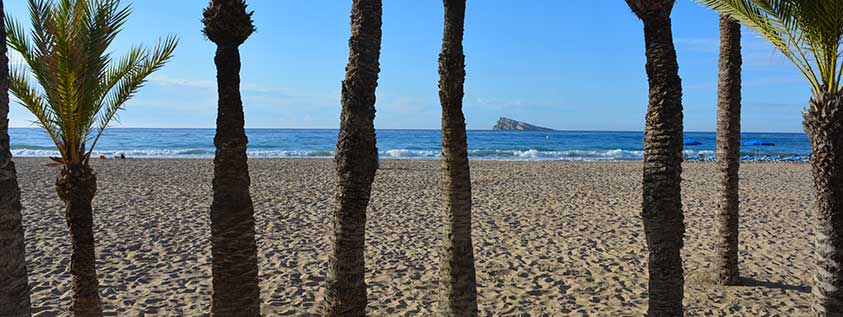
Golden Visa Spain application process
Below is a simple outline for the application process of a Golden Visa Spain.
- Before you apply for this type of residence visa, the applicant should prove their foreign citizenship.
- The applicant must then submit an application form and documents which will support their family ties (apart from the financial ones) to Spain.
- Get your passport ready. The government will scan biometric data, passport pictures, and documents proving that the applicant is not a security risk.
- Confirmation of your investment amount (which depends on your investment option) and documents related to it, which the Spanish authorities will check for compliance with regulations and due diligence procedures (to prevent money laundering).
- Bank documents related to required funds (money invested into the country), such as recent bank statements, tax forms of the most recent years, income declarations for the last three years.
- Evidence that applicant has sufficient funds available to maintain themself and their family members during their first year in Spain.
- The Spanish authorities will then process the application, who will conduct a due diligence search on your background for the previous five years.
- If all documents pass through scrutiny successfully and visa requirements meet. The application will get invited to an interview with Spanish consulate officials in their home country.
- The government will not process an application until all fees are paid (first stage of 100€ and second one – 250€ per applicant ).
- The outcome of the due diligence and processed application will be your Golden Visa which are valid for 12 months.

List of documents required
To apply for the Golden/Investor Visa, you will need to provide the following documentation during your appointment.
- Criminal records certificate: You must also translate this into Spanish. It cannot be more than three months old.
- National visa form: To complete it, you need to sign it and date it.
- Photocopy of all passport pages
- Birth certificate: This must be translated into Spanish be signed by the translator. The translator must swear that they will do a good job.
- Bank certificate: Which shows you have financial means to satisfy the income requirements.
- Private health insurance: If you want to live in Spain, you need health insurance, and it should be from a company that is authorised to work in Spain.
- A recent photo with white background
- Valid residence permit and photocopy
- Valid passport or travel document: You need to have a passport with at least 12 months left and two pages blank.
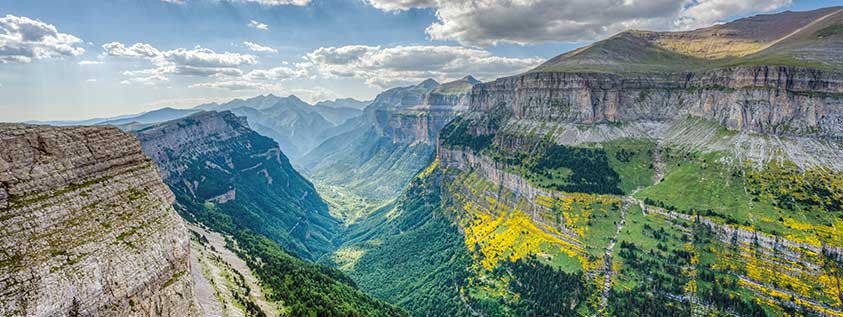
Getting permanent residency in Spain via the Golden Visa
Basically, to obtain this residency in Spain, the applicant must prove that they have lived in this country for at least five years. If an applicant has already got their Golden Visa, extended it and stayed for over five years, they can apply for a permanent residence. By further proving your ties with Spain, you will more likely get permanent residence in Spain from the Spanish Consulate. You can also apply for permanent residency sooner than five years; however, if you have resided in Spain on your papers for a cumulative period of 5 years, then obtaining permanent residence is easier.
To make sure you are doing the right thing and applying for this Visa correctly, I recommend that you work with an immigration agency such as ours, which will help you through the entire process. We will provide you with all the necessary documents and make it a success story.
Spanish Golden Visa Residence Permit FAQ
Below you can find common questions asked related to the Golden Visa in Spain.
What are the benefits of a residence permit in Spain?
The main benefit is that you will be able to enjoy all of Spain’s merits. Next to this, you will get permanent residence in Spain after five years of legal residence. After this period, you can travel across Europe (Schengen Area) without needing a Visa. The countries included in the Schengen Area are Austria, Belgium, Czech Republic, Denmark, Estonia, Finland, France, Germany, Greece, Hungary, Iceland, Italy, Latvia, Liechtenstein, Lithuania, Luxembourg, Malta, The Netherlands, Norway, Poland, Portugal, Slovakia, Slovenia, Spain and Sweden.
Income requirements for the Golden Visa Spain?
When you have invested in the Golden Visa Spain, you also need to have enough money to support yourself and your family.
Investors – To support the principal applicant, you need to have a monthly income of 400% of the IPREM, which is €564.90 in 2021. The principal applicant must show that they make at least €2,259.60 per month. If you have more family members, it costs more money, which is €564.90 per month extra.
Entrepreneurs – They will need only to prove that they are 100% of the IPREM, which is €564.90 per month in 2021. 150% of the IPREM per month is needed for each family member. More than two more members mean 50% of the IPREM for each family member per month.
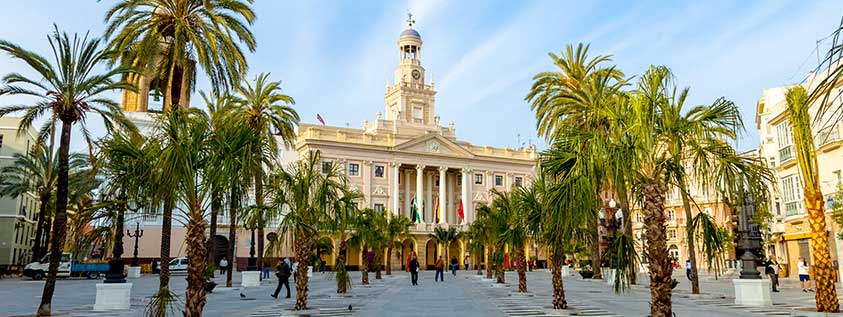
What is the NIE number, and why do I need it?
The NIE (Numero de Identificacion Extranjera) is an identification number for foreigners living in Spain. You need the NIE number to purchase real estate in Spain. Through the Power of Attorney, we can acquire the NIE for you, and this way, you don’t have to travel to Spain.
What countries are excluded from the Golden Visa arrangement?
In 2012 the Spanish authorities excluded some countries from eligible nations for the Golden Visa Spain program. The following countries are taken off “list A”. They, therefore, will no longer be qualified to obtain the investor visa: Angola, Argentina, Bolivia, Brazil, Cambodia, China, Dominican Republic, Ecuador, Egypt, Guatemala, Honduras, India, Indonesia, Iran, Jordan, Kazakhstan, Lebanon, Macedonia (FYROM), Mauritius, Nicaragua, Nigeria, Pakistan, Peru, and Sri Lanka.
Who can apply for the Spanish Golden Visa?
Any foreign citizen who invests 500,000 euros or more in Spanish real estate can apply to the Golden Visa Spain. The owner should be a non-EU national (not from Spain or other countries of the EU).
How much does it cost to get all the documents?
Most of the required documents and the investment fee are free of charge. The only cost you will have to pay is the first stage (100€) and the second one (250€). The first stage consists of applying all required documents, and the second one is a payment for further processing of the file.

How long does it take to get a Spanish Golden Visa?
A minimum would be 20 working days for a Spanish Residency Permit. Sometimes it can take up to 45 working days because some embassies will not issue visas in less than four weeks. Spanish bureaucracy can take time, but that is also part of the Spanish lifestyle. In the summertime, the Spanish administration is slower than in other year periods.
A date needs to be scheduled when you will hand in all required documents at the Spanish consulate. At that point, you will need to be physically present at the consular office in your country, and we recommend being punctual as some embassies tend not to grant flexibility on particular moments.
Just keep in mind that getting the papers can take up to two months to complete.
Will my family members be able to stay in Spain with me if I get the Golden Visa Spain?
Yes, they will be able to stay in Spain with you. Your family can apply for a residence permit after you obtain your Spanish Golden Visa, and they will be able to work, study and live in Spain. Family members that are allowed to stay are:
- Your children under 18 years old. You must prove that you are the legal guardian of those children.
- The spouse, if the marriage is valid in the country where it was registered, and there is proof.
- If they are over 65, and your parents do not have a pension to cover their daily expenses, they will need to prove that they can.

What if my last name is different from my spouse’s?
If you are married, your last name doesn’t matter. Your marriage certificate should confirm your marriage. All that matters is that you are legally married and can prove this fact with necessary documents.
Do I need Spanish knowledge?
Most documents are in Spanish. However, it is not needed to know Spanish to get this residence permit. We can help you with the Spanish documents required to obtain this residence permit.
What type of property can I buy to get a Spanish Golden Visa?
Your investment can be by purchasing new buildings or apartments in Spanish cities. Some small towns are not allowed because they are not seen as real estate investment locations. The property can be located in a city where you want to live or just close to it (50 km) because Spanish residency laws say that the property should be located within 30 minutes from your place of residence by car or train. You will not need proof that you will reside at that property. The local authorities will make the final decision when you apply for a Golden Visa.
How can I show that I have enough funds?
You will need to prove that you have enough funds available and that they come from legal sources. There is no official documentation required, but it is advisable to bring all bank statements of the past six months to show the Spanish authorities. We can help you with that too if needed.
How can I show that I have a clean criminal record?
You must prove that you have a clean criminal record from your country of origin or from the country where you are currently living. You can get this document at a police station. However, some countries do not provide this information and our lawyers can raise this issue to find the best solution for you.
Is it possible to hold two passports in Spain?
Yes, you can have dual citizenship with your home country (passport from your country of origin) and Spanish passport (Spanish citizenship). The Spanish passport is good to have because you do not have to apply for a residence card anymore. Next to this, you can travel across the Schengen Area without visa requirements, and you will receive discounts on different attractions and purchases in Europe when showing your Spanish passport. A way to get it is by following these three steps.
- Invest 500.000 euros or more in real estate and apply for a Golden Visa residence
- After five years, apply for a residence permit
- After five years, apply for Spanish Citizenship.
How long can I stay in Spain with a Golden Visa?
The document gives you the right to reside in Spain for one year. After one year, you can extend your Visa for two more years. After this period has passed, you may apply for permanent residency in Spain – Residence Card for Permanence. A permanent residency means that you can reside in Spain indefinitely (you can stay there as long as you like), and your family members can do so as well. After five years of permanent residency in Spain, if you wish, you may apply for Spanish Citizenship. Spanish citizenship means that you can have dual citizenship, which will allow you to hold a passport for two countries at once.
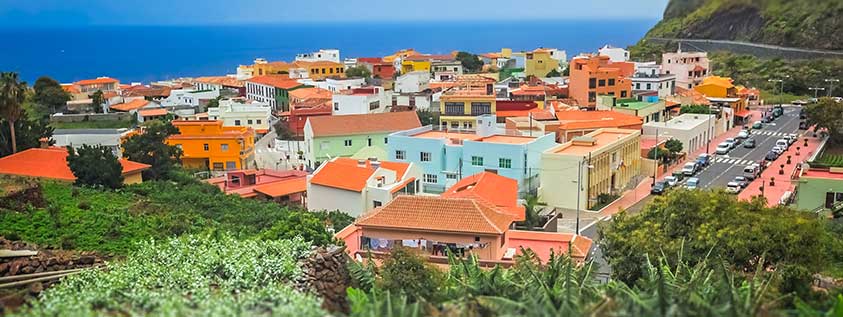
Can I purchase property through a company registered outside Spain?
Yes, you can buy a property with a company registered outside Spain under the following conditions:
a) The company must have a legal representative who is a Spanish resident.
b) This person must be the one in charge of all transactions and demonstrate control of the business (think about signing documents with your solicitor, doing checks for you or even sending bills to the bank).
c) The company is not present in a tax haven jurisdiction. Tax haven’s include countries like the British Virgin Islands, Bermuda, Jersey, and the Cayman Islands.
d) The company should prove that its capital comes from legal resources and not the illegal money laundering channels (the Golden Visa Law says this in detail). We can help you because we know which companies can help you buy property under your name.
Can I submit a Golden visa application without actually travelling to Spain?
You can buy a real estate property through the Power of Attorney. This way, you don’t have to be physically present in your country to complete the process. Often investors choose to buy a property via the Power of Attorney. Purchasing a property through the Power of Attorney means a lawyer will buy the property on your behalf. We will make certain legal requirements and laws in Spain are met so that there will be no problems later on with your Spanish investment visa.
Does the property investment threshold of 500.000 euros include taxes?
No. The 500.000 euros is only the property value and should not be included with any taxes related to the investment. Taxes also vary depending on what type of property it is, and where the property is located. Generally, you will need to pay an additional VAT tax on new properties and ITP when buying resale properties. Additionally, fees are paid at the notary office, registry office, stamp duty for your property documents. We recommend getting in touch with us for an accurate presentation of your investment.
Do I have to live in Spain to get the Golden Visa ?
No, you only need to be a legal resident of Spain (this means having a NIE number, and renting or owning a house). You do not have to live in Spain. This is one of the most significant advantages compared to Portugal’s Golden Visa. It is an advantage because you can purchase property in Spain and still travel freely through the Schengen area.
Can I renew this residence permit?
Yes, you can renew your Golden Visa residence after it expires without any problem as long as you keep complying with the requirements for Golden Visa program.
Can my children work and study when I have the residence permit?
Yes, your children can learn a new language and study in Spain. They will have a residence card (below 18 years) or their ID (above 18 years). If they decide to study abroad from Spain, you will get them enrolled in an international school.
Are my pension rights recognised in Spain?
Yes, your pension rights are recognised in Spain, and you can collect your retirement benefit anytime while living as a legal resident of Spain. That is another reason why this residency permit is attractive to many people. If you have any further questions or concerns, please feel free to contact us, and we are more than happy to help out.
How much tax will I pay for buying property in Spain?
If you are buying a new property, you will have to pay VAT, which varies depending on your property’s region. Generally, it is 10%. If you buy a resale property, you will not have to pay VAT, but you will be required to pay ITP. The amount of tax you need to pay depends on the property.

How do I find a Spanish Property for my investment?
There are many property investment options. You can find a Spanish property on well-known property websites in Spain such as Fotocasa, Idealista and some smaller local websites. All of these websites are free to use. We recommend using a property agent to look for the property as it will be faster. Property agents can help you find the ideal property for you and arrange a viewing for you. We work with a group of property agents to recommend the best one for you.
How do I know that the property is legal?
We have helped many people buy properties in Spain, and we use only reputable property lawyers to make sure your transaction is legit. If any irregularities with your real estate property would put you at risk, our lawyers will let you know. There can be a lot wrong with Spanish properties like illegal structures, illegal constructions (e.g. a pool), etc. Our lawyers can help you identify these problems to correct them before you buy the property in Spain. Next to this, we ensure your documentation is taken care of according to Spanish law.
What kinds of property can I buy to get the Golden Visa?
The Golden Visa is for purchasing any kind of property in Spain. You can buy a house, apartment or land. It is entirely up to you what type of property you want to buy. We recommend getting an independent and experienced lawyer who specialises in real estate transactions in Spain so that they can look at the market prices and advise you on the most suitable purchase for you.
Our company has been working with local property agents in different regions of Spain (Costa Brava, Costa del Sol, Alicante, Ibiza, and many other places). If you need any help or recommendations on buying a property in Spain and to get the Golden Visa in Spain, do not hesitate to contact us. We will be more than happy to help you in your search for the ideal property.
Can I sell my property later on and keep the Golden Visa?
Yes, you can sell your property and keep the Golden Visa. However, you need to re-invested the money in another property in Spain.
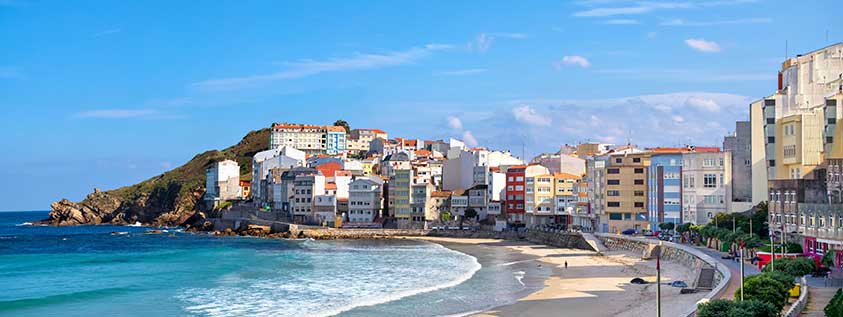
Is there a minimum stay requirement to keep the Golden Visa Spain?
No, you do not need to stay in Spain for any minimum time. You can come and go as you like but remember that the Golden Visa is only valid for one year at a time. You only need to enter Spain once with your Golden Visa to renew it for the following year. When your Golden Visa expires, you can get a temporary residence permit that is valid for either one or two years.
What makes Spain a great country to live in?
Spain is an open, easy-going society with a lot of history. Spanish people are predominantly relaxed and friendly, which many foreigners like. It has fantastic weather (most of the time), beautiful beaches, mountains, and cities with lots to do. It is a great place to live all year round.
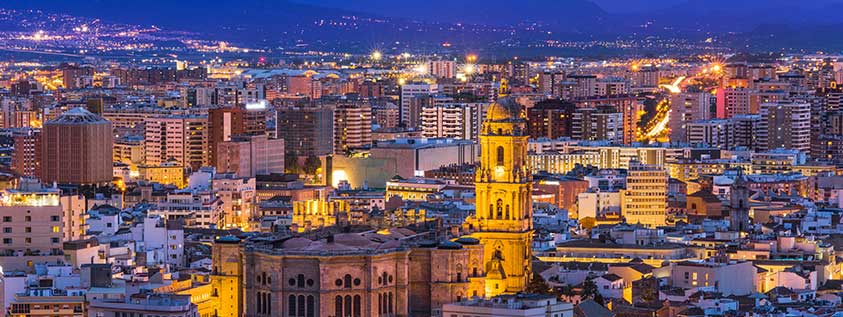
A word from SublimeSpain
The Golden Visa in Spain is a fast way to live and work in Spain as it gives you full access to health care, education and employment. The Spanish Golden Visa gives you easy access to all of these services and makes it easier for foreigners who want to have a life here.
Getting a Golden Visa can be time-consuming and complex, especially if you don’t speak Spanish fluently. SublimeSpain has immigration lawyers that can help you. Contact us, and we will get you your Spanish Golden Visa as fast as possible.
Disclaimer: Information on this page may be incomplete or outdated. Under no circumstances should the information listed be considered professional legal advice. We highly recommend seeking guidance from a legal expert if you lack extensive knowledge or experience dealing with any of the procedures outlined in these articles.





















